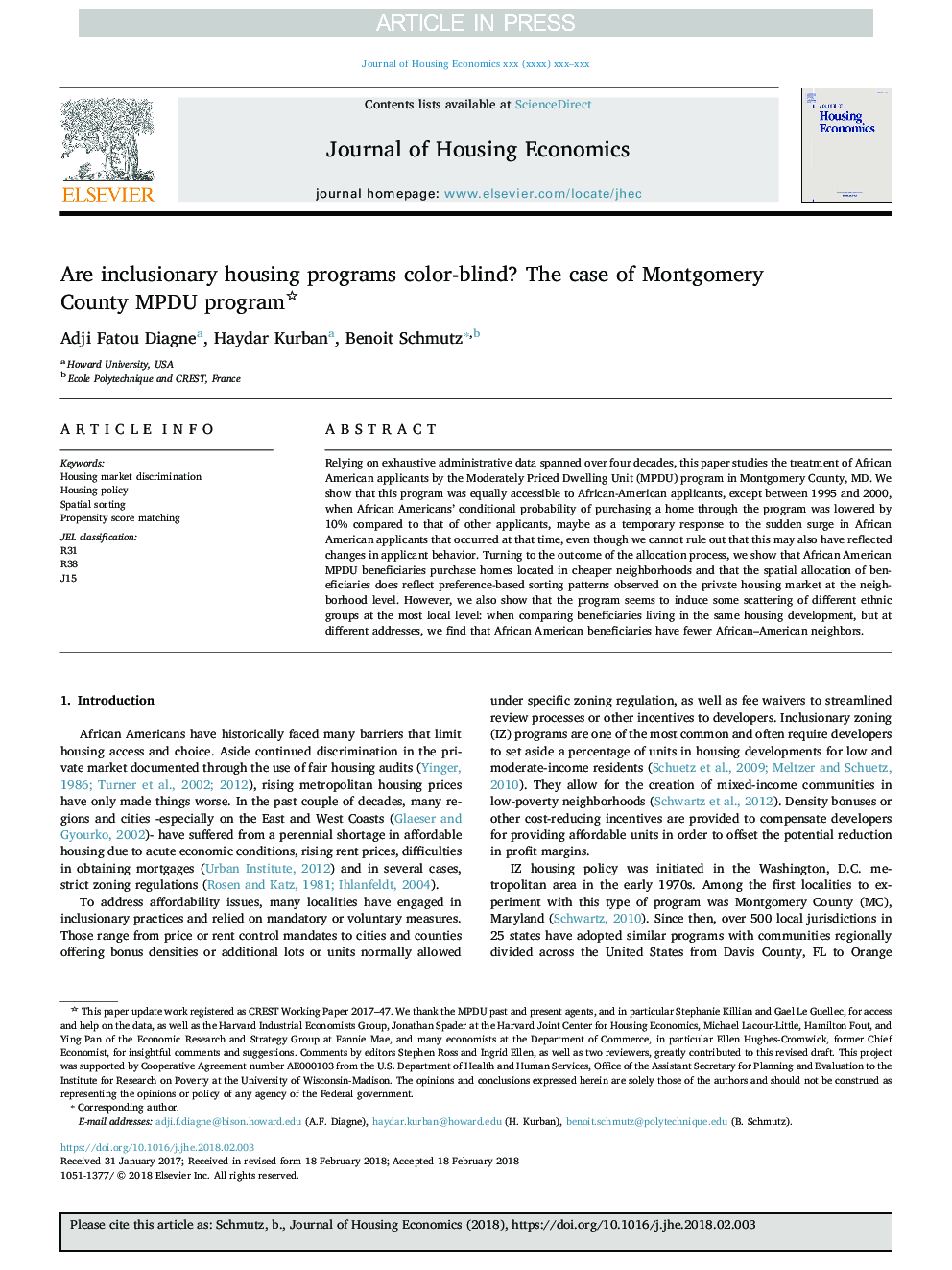| Article ID | Journal | Published Year | Pages | File Type |
|---|---|---|---|---|
| 7363648 | Journal of Housing Economics | 2018 | 19 Pages |
Abstract
Relying on exhaustive administrative data spanned over four decades, this paper studies the treatment of African American applicants by the Moderately Priced Dwelling Unit (MPDU) program in Montgomery County, MD. We show that this program was equally accessible to African-American applicants, except between 1995 and 2000, when African Americans' conditional probability of purchasing a home through the program was lowered by 10% compared to that of other applicants, maybe as a temporary response to the sudden surge in African American applicants that occurred at that time, even though we cannot rule out that this may also have reflected changes in applicant behavior. Turning to the outcome of the allocation process, we show that African American MPDU beneficiaries purchase homes located in cheaper neighborhoods and that the spatial allocation of beneficiaries does reflect preference-based sorting patterns observed on the private housing market at the neighborhood level. However, we also show that the program seems to induce some scattering of different ethnic groups at the most local level: when comparing beneficiaries living in the same housing development, but at different addresses, we find that African American beneficiaries have fewer African-American neighbors.
Related Topics
Social Sciences and Humanities
Economics, Econometrics and Finance
Economics and Econometrics
Authors
Adji Fatou Diagne, Haydar Kurban, Benoit Schmutz,
